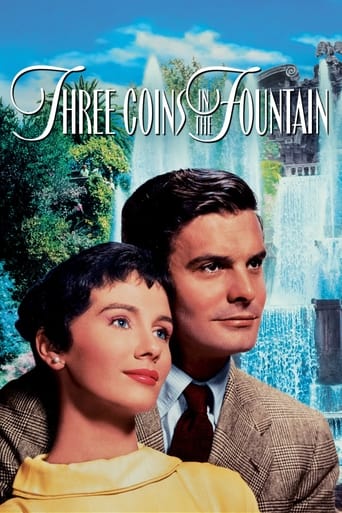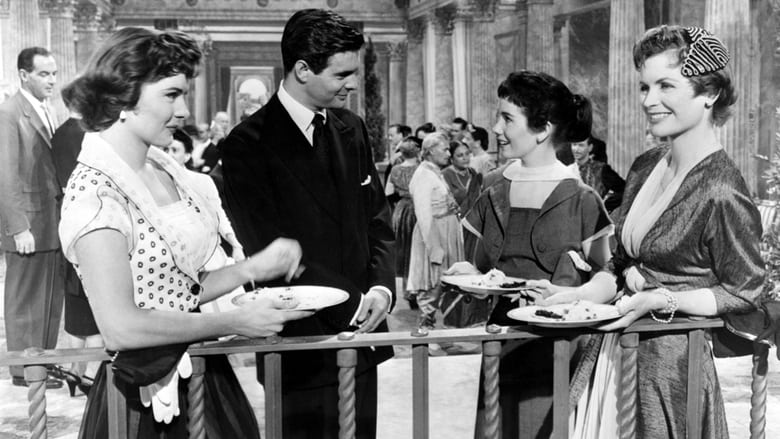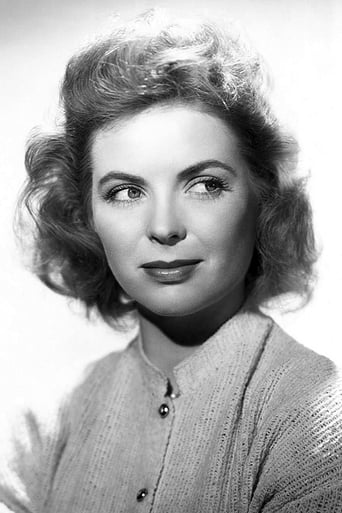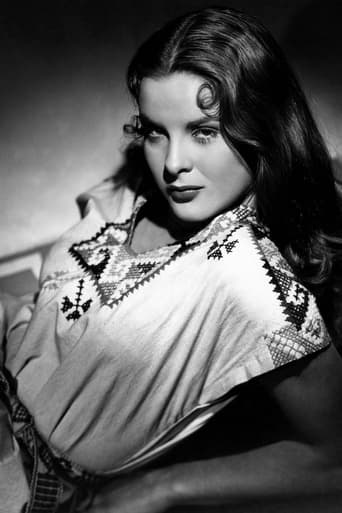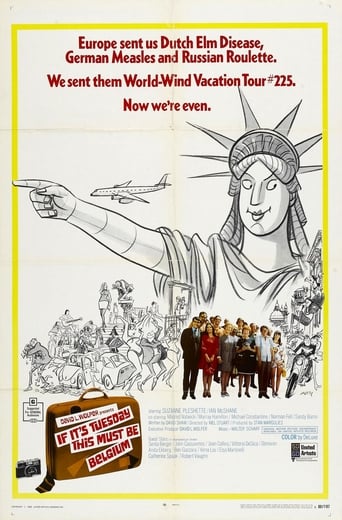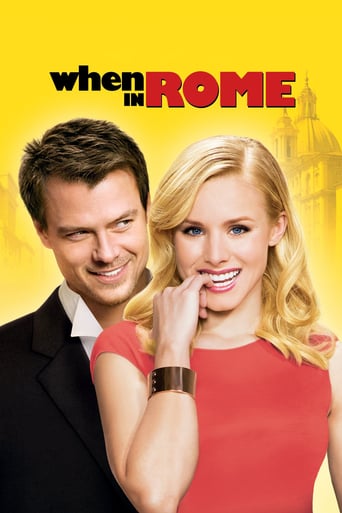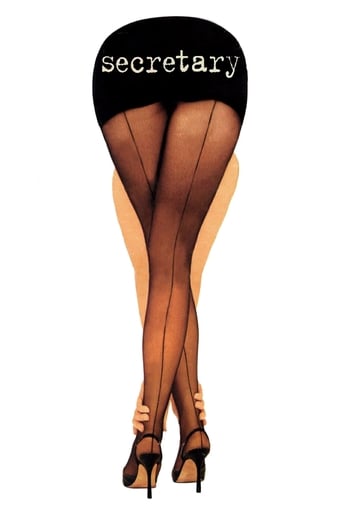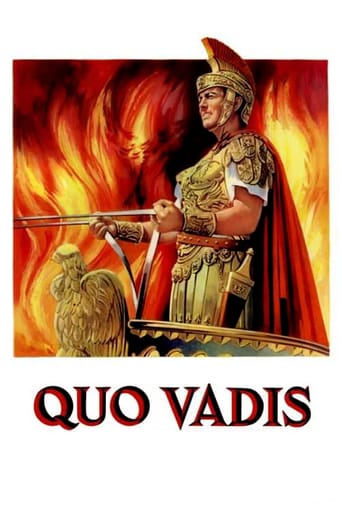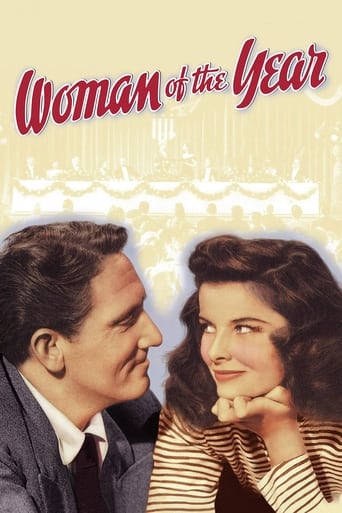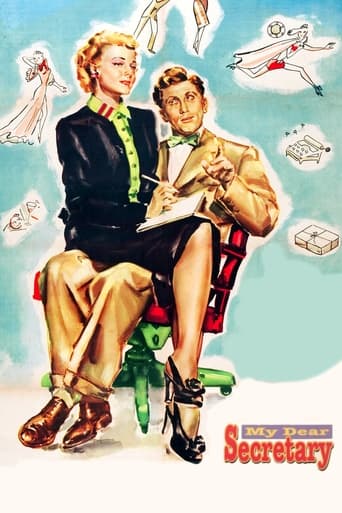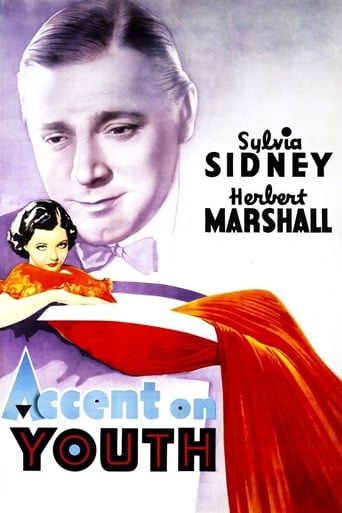Three Coins in the Fountain (1954)
Three American roommates working in Italy wish for the man of their dreams after throwing coins into Rome's magnificent Trevi Fountain. Frances, a secretary at a government agency, sets out to win the heart of her smooth-talking novelist employer; Anita, her coworker, defies office regulations by romancing an Italian who works at the agency; and office newcomer Maria meets a real Italian Prince Charming and falls madly in love. The only thing the three hopeful ladies need to do is seal their fate.
Watch Trailer
Cast


Similar titles
Reviews
Sorry, this movie sucks
Must See Movie...
Great Film overall
By the time the dramatic fireworks start popping off, each one feels earned.
Many wars and crimes have erased the idealistic, romantic dreams of that fossil mid 20th century leading us closer to Huxley and Orwellian nightmares. "Three coins" is a simple movie which matches wonderfully a music theme sang by Sinatra. It's 3 uncomplicated stories about the desire to get married and live, whenever possible, in pleasant company. It surprises me how all the magic charm of Rome has survived the unforgiving passing of time. Enhanced by a great photo and a excellently revamped version. There it is, the eternal city, inviting us all to go visit and maybe throw a coin in Trevi Fountain. You may get a pinch, a stolen handbag or the love of a lively Italian. Anything goes. Is it that bad having reveries about a "Golden Age" where no blood, crime, or sadistic feelings is a must to get a money-making flick? If you want an uncomplicated film, with a simple but intelligent script you are entitled to take a break and get ready for yet another tough & realistic day after this charming, romantic fantasy. If you prefer something somber, there is always, of course, "Game of Thrones" ...
"Three Coins in the Fountain" is a typical 1950's "Women's Picture." Back then, Hollywood studio executives were sure that the only thing a woman ever wanted to do with her life was find a husband and get married.Today, this film would be called a "chick flick." Modern feminists will probably hate it, because the three female leads seem to have marriage on their minds...and not much else.In the movie, three secretaries share an apartment at the "Villa Eden" in Rome. It's one of those overly-spacious apartments that looks like it was decorated by a Hollywood set designer. How can they afford such a luxurious apartment? "Oh, the rate of exchange in Rome is very favorable for Americans." Uh huh.Miss Frances (Dorothy McGuire) has been serving as secretary for John Frederick Shandwell (Clifton Webb), a snooty American writer, who has been living in Rome for the past 15 years. (As other reviewers have pointed out, this skips over the fact that they would have been living in Rome before and during World War II, an event that nobody ever mentions in the film.) He proposes marriage to her on the day before his doctor tells him he has only a year to live.Frances' roommates, Anita Hutchins (Jean Peters) and Maria Willaims (Maggie McNamara), are working as secretaries at the United States Distribution Agency, one of those Hollywood "government agencies" with an eagle emblem on the door. Anita is about to return to America, because she can't find a man to marry in Rome. But then she finds love with Giorgio Binachi (Rossano Brassi), an Italian translator who works at the USDA. Unfortunately, Giorgio is immediately fired from his job for violating the USDA's policy against employees dating other employees, set in place by Mr. Burgoyne (Howard St. John), the doofus boss who runs the agency.Meanwhile, Maria decides to ensnare Prince Dino di Cessi (Louis Jourdan), an Italian prince known as "the predatory prince." Maria pretends to like all the things the prince likes (Italian opera, playing the piccolo), to trick him into marrying her, but of course, she falls in love with him instead.The movie's major strength is its outstanding cinematography, featuring beautiful views of Rome and Venice. But the story itself is dated and trite. The point of throwing "three coins in the fountain" is to ensure that you'll return to Rome. I don't think I'll return to *this* Rome.
Rome was flavor of the month in fifties Hollywood; Paramount wound up with a mega hit sleeper on its hands when the romantic chemistry between Gregory Peck and Audrey Hepburn in Roman Holiday proved both a commercial and critical success. Hollywood minds are, of course, geared to spin-off potential; if One romance in black and white could rake in the dough think how much more could be made out of THREE in Technicolor. More than half a century later the response is pretty much ho hum but in the first half of the fifties a combination of the finest male singer of the twentieth century singing (albeit uncredited) a catchy title song over a series of tourist views of Rome predisposed audiences to like whatever came next however hackneyed. The sextet was interesting, Louis Jourdan wasn't even Italian but then neither was Clifton Webb, though Jourdan did personify the handsome Leading Man. Maggie MacNamara was the most interesting of the females but made only five films in total and in one of those she was uncredited; Jean Peters was arguably best known for becoming Mrs Howard Hughes in 1957 and retiring from the screen until the 70s and Dorothy McGuire was the best actress by a country mile. With a side trip to Venice thrown in this RomCom - a chick flick before the term was coined - couldn't miss and still has a novelty value for the easily pleased.
Three Coins in the Fountain is the standard location shoot from the fifties. We get expensive, widescreen photography (Italy - very nice), but the minute we enter an interior (or a character gets in a car) we're in an artificial world of soundstages. This becomes the defacto formula for 50s travelogue/dramas. The movie itself would fall under the heading "chick flick," a term of assignation, for a genre that generally offers only sisterhood beset by minor conflicts; and women either short-changing their own lives and development for a man (the 50s), or defining themselves via quasi-rejecting some social norm (the 80s forward). To be sure, there are chick flicks that can be enjoyed by general audiences (Terms of Endearment) but the term is characteristically used to deservedly dismiss trifling story lines like this one.Three women are explained to be in Italy for various reasons, and become room-mates. As the time demands, they're absurd, but true period types who use the steno-pool to travel, have an income, and find eligible bachelors whom they agree never to compete with; women whose truncated education (and society's glass ceiling) insure that they can't. Additionally, improbably, they live like queens.The movies wide-screen compositions are handsome but the story is off the low end of the scale for inconsequence. The script writers can't be bothered to spare four lines to introduce the piece's major conflict. Here a stenographer is such a dense bimbo that she a) inexplicably reveals a roommates transgressions to her boss, and b) forgets to inform her, causing job loss for her boyfriend and embarrassment for the room-mate. It's just too darned hard for this pretty thing to understand that she's both been outmaneuvered, AND done something very unethical, even within the terms of the movie. The movie notes none of this. The same character has an unexplored conflict in her desire to win a guy, but to also reap benefits (travel, etc.) from delaying or denying the onset of his romantic or sexual interest. The movie is a bewildering gender-power study.

